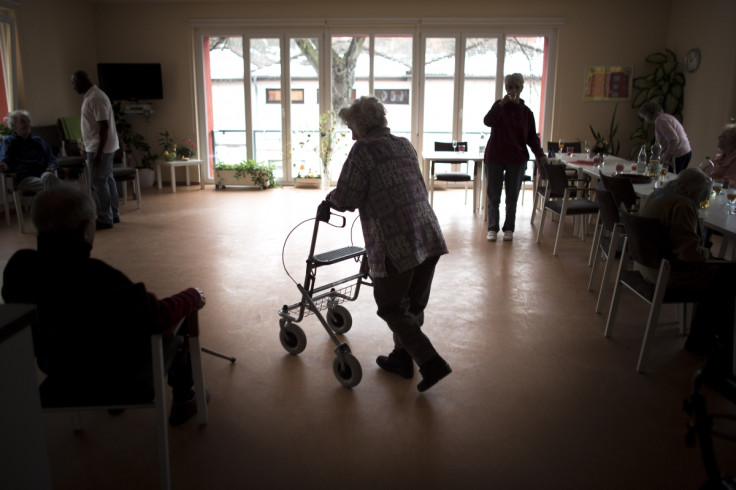Dementia now the leading cause of death in England and Wales
The condition replaces heart disease as England and Wales' biggest killer.
Dementia has become the leading cause of death in England and Wales according to figures released by the Office of for National Statistics (ONS) on Monday (15 November). The statistical bulletin on deaths registered in England and Wales said that 11.6% of all deaths registered could be accounted for by dementia.
Although dementia overtook heart disease at an individual level, the report showed that cancer was the biggest killer at a broad disease level, accounting for 27.9%, while circulatory diseases (including heart disease) accounted for 26.2%. .
According to a spokesperson for the ONS, the rise in deaths by dementia could in part be attributed to an ageing population, but also thanks to better detection as awareness of the illness has grown
Elizabeth McLaren said, on behalf of the ONS: "In 2015, dementia and Alzheimer's disease became the leading cause of death in part because people are simply living longer but also because of improved detection and diagnosis.
"An updating of the international rules for determining the underlying cause of death is also a factor, with the increase in cases attributed to these conditions accompanied by falls in other causes," she added, according to the BBC.
Women were more likely to die as a result of dementia than men, because they lived longer. 41,283 deaths occurred in women in 2015 as a result of dementia, compared to less than half that figure, 20,403, in men. In women, dementia accounted for 15.2% of all deaths. For men, heart disease was still the biggest killer.
Though there is some conflation of Alzheimer's and dementia, dementia is caused by damage to the brain as a result of illnesses such as Alzheimer's. In fact Alzheimer's is the biggest cause of dementia.

Though the rise in diagnosis rates was undoubtedly positive, Hilary Evans, Chief Executive of Alzheimer's Research UK, said that the figures only served to highlight the need for more research around the condition.
She said: "These figures once again call attention to the uncomfortable reality that currently, no-one survives a diagnosis of dementia.
"Some of the increase can be explained by a rise in diagnosis rates and a change in the way dementia is recorded on death certificates, offering a more accurate picture of the impact of dementia. With growing numbers of people living with dementia, we urgently need treatments that can stop or slow the diseases that drive this devastating condition.
"Today's report shows the potential for medical research and public policy to make a positive impact on the health of our nation. Thanks to better treatments and prevention programmes, deaths from many other serious conditions have been steadily dropping: now we must do the same for dementia.
"Dementia is not an inevitable part of ageing, it's caused by diseases that can be fought through research, and we must bring all our efforts to bear on what is now our greatest medical challenge."
In young people aged 5-34 suicide and injury or poisoning of undetermined intent remained by far the biggest killer. In young males between 20-34 it was almost 10% higher than their females counterparts at 24.5% compared to 14.8%. It was also the biggest killer of men aged 35-49, though by a lesser degree.
Suicide & injury/poisoning of undetermined intent leading cause of death for those aged 5-19 in Eng&Wales in 2015 https://t.co/fGpmpqFnLL pic.twitter.com/2nBkq2lppr
— Elizabeth McLaren (@StatsLiz) November 14, 2016
© Copyright IBTimes 2025. All rights reserved.






















